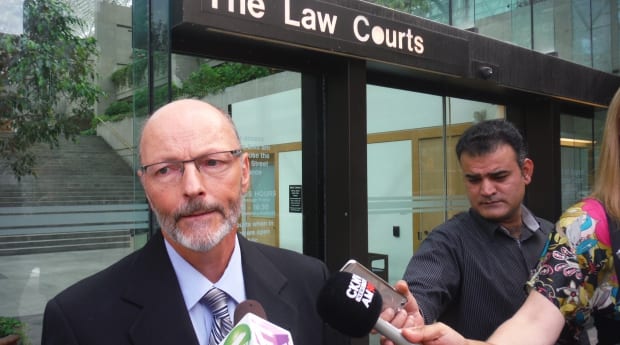Go back to your original decision to accept graduates from Trinity Western University, BC’s chief justice told the province’s law society Dec 10, in his ruling on the Christian university’s proposed law school.
The law society’s directors initially voted to accept TWU’s future graduates in April 2014.
Six months later, they rescinded that decision after an outcry from their members prompted a referendum.
Concerned about TWU’s community covenant — which threatens to penalize or expel students for having sex outside heterosexual marriage — members voted three-to-one to reject the school in the referendum.
BC Supreme Court justice Christopher Hinkson says the directors should not have been blinded by their members’ referendum.
The referendum should have not have dictated the directors’ decision, Hinkson ruled. They allowed it “to supplant their judgment.”
Hinkson says the directors should have stuck to their own more careful weighing of the Charter rights in question — a Christian university’s freedom of religion versus equality rights for gays and lesbians.
“I find that the decision was made without proper consideration and balancing of the Charter rights at issue, and therefore cannot stand,” Hinkson ruled.
Though Hinkson acknowledged that the referendum package contained much information about the issue at hand, he said it could not be shown members had fully read it before voting against TWU.
“The appropriate remedy is to quash the decision and restore the results of the April 11, 2014 vote,” Hinkson ruled.
TWU welcomed the decision.
“As the chief justice has affirmed, the decision to approve a law school graduate must be based not on personal opinions and feelings, but on the law and evidence,” says TWU faculty director Earl Phillips in a Dec 10 news release.
The law society says it’s reviewing the judgment and will consult legal counsel regarding next steps.
Lawyer barbara findlay tells Daily Xtra she’s pleased the decision is based on procedural concern rather than the merits of the case itself.
Findlay welcomed the referendum results in October 2014, saying, “It is a proud day to be a lawyer.”
She was among the law society members who, in light of TWU’s allegedly discriminatory covenant, challenged the directors to reconsider their initial approval.
“I am overjoyed at the commitment of the legal profession to the pursuit of equality and their willingness to insist to the benchers that the benchers live up to their leadership obligations,” she said when the directors rescinded their approval for TWU.
Still, she said at the time, TWU could challenge the law society’s decision to allow the referendum to be binding.
Hinkson’s ruling is consistent with the law, she says now.
But she’s confident the law society’s directors will now reconsider the issue correctly and decide for themselves not to accredit the school.
BC’s law society isn’t the only one locked in battle with TWU over the fate of the school’s future law grads.
An Ontario court in July found TWU’s student covenant discriminatory and upheld the law society’s decision there to reject the school’s future graduates.
In January 2015, the Nova Scotia Supreme Court found the opposite. It ruled that province’s law society lacked authority to reject TWU graduates.
It is widely expected the case will ultimately wind up before the Supreme Court of Canada.
TWU lawyers asked Hinkson to reinstate the BC law society’s initial approval during a three-day hearing from Aug 24–26, 2015. TWU lawyer Kevin Boonstra argued the law society’s job is to regulate professional competence; not morals.
TWU’s religious freedom may allow it to discriminate under the Charter of Rights and Freedoms, but the law society can’t discriminate, the law society’s lawyer replied. The law society must consider the discriminatory aspects of the evangelical Christian university’s community covenant, Peter Gall argued.
Though Hinkson was most concerned with procedural questions around the law society’s referendum, he also suggested the law society’s decision infringed TWU’s right to freedom of religion.
A 2001 Supreme Court of Canada decision upheld TWU’s right to teach Christian values to would-be teachers and to insist that incoming students sign its covenant.
The court found the university’s teacher program graduates were entitled to hold “sexist, racist or homophobic beliefs” as long as they didn’t act on them in the public school classrooms to which they might be assigned.
Hinkson ruled he was not persuaded that circumstances or jurisprudence respecting human rights have so fundamentally shifted the parameters of the debate.

 Why you can trust Xtra
Why you can trust Xtra


